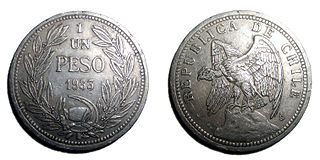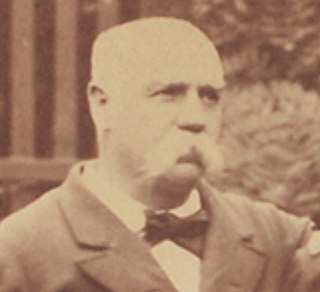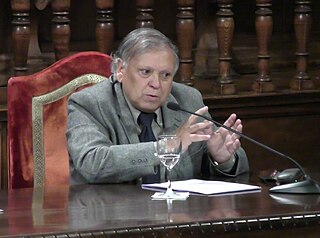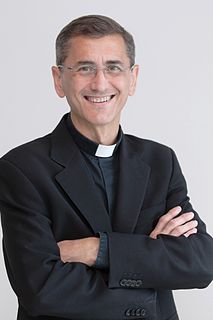Related Research Articles

The Huilliche[wi.ˈʝi.tʃe], Huiliche or Huilliche-Mapuche are the southern partiality of the Mapuche macroethnic group of Chile. Located in the Zona Sur, they inhabit both Futahuillimapu and, as the Cunco subgroup, the north half of Chiloé Island. The Huilliche are the principal indigenous people of those regions. According to Ricardo E. Latcham the term Huilliche started to be used in Spanish after the second founding of Valdivia in 1645, adopting the usage of the Mapuches of Araucanía for the southern Mapuche tribes. Huilliche means 'southerners' A genetic study showed significant affinities between Huilliches and indigenous peoples east of the Andes, which suggests but does not prove a partial origin in present-day Argentina.

The economy of Chile has shifted substantially over time from the heterogeneous economies of the diverse indigenous peoples to an early husbandry-oriented economy and finally to one of raw material export and a large service sector. Chile's recent economic history (1973–) has been the focus of an extensive debate from which neoliberalism acquired its modern meaning.

Luis Antonio Eguiguren Escudero was a Peruvian educator, magistrate, historian and politician. He was the director of the General Archive (File) of the Nation (1914), Alderman of Lima (1914–1920), Mayor of Lima (1930), President of the Constituent Congress (1930–1932), founder and leader of the Peruvian Social Democratic Party. He won the Peruvian presidential election of 1936, but his victory was ignored by the Congress and the then-President Oscar R. Benavides, who claimed that he had won with votes of the APRA. He presided over the Supreme Court and the Judiciary in 1953 and 1954.

The following is an alphabetical list of articles related to the Republic of Chile.
The 1687 Peru earthquake occurred at 11:30 UTC on 20 October. It had an estimated magnitude of 8.4–8.7 and caused severe damage to Lima, Callao and Ica. It triggered a tsunami and overall about 5,000 people died.

The Revolution of 1851 was an attempt by Chilean liberals to overthrow the conservative government of president Manuel Montt and repeal the Chilean Constitution of 1833. After various battles and sieges, by late December 1851 government forces had subdued the revolutionaries.
In Chilean historiography, Colonial Chile is the period from 1600 to 1810, beginning with the Destruction of the Seven Cities and ending with the onset of the Chilean War of Independence. During this time, the Chilean heartland was ruled by Captaincy General of Chile. The period was characterized by a lengthy conflict between Spaniards and native Mapuches known as the Arauco War. Colonial society was divided in distinct groups including Peninsulars, Criollos, Mestizos, Indians and Black people.

Benjamín Vicuña Mackenna was a Chilean writer, journalist, historian and politician. Vicuña Mackenna was of Irish and Basque descent.
¡Aquí Está! was a Venezuelan weekly newspaper, the central organ of the Communist Party of Venezuela. ¡Aquí Está! was founded in 1942 by Miguel Otero Silva, as the Venezuelan political climate was liberalized under Isaías Medina Angarita. ¡Aquí Está! substituted the previous Communist Party organ El Martillo, which had been re-launched in 1938. ¡Aquí Está! was marked by a 'Browderist' editorial line. Apart from Otero Silva, other editors of ¡Aquí Está! were Carlos Augusto Léon and Ernesto Silva Tellerías. The newspaper was published from Caracas. Through ¡Aquí Está! the Communist Party was able to win a considerable influence over the urban intelligentsia.

Between 1830 and 1850 Chilean silver mining grew at an unprecedented pace which transformed mining into one of the country's principal sources of wealth. The rush caused rapid demographic, infrastructural, and economic expansion in the semi-arid Norte Chico mountains where the silver deposits lay. A number of Chileans made large fortunes in the rush and made investments in other areas of the economy of Chile. By the 1850s the rush was in decline and lucrative silver mining definitively ended in the 1870s. At the same time mining activity in Chile reoriented to saltpetre operations.
La Voz del Pueblo was a socialist weekly newspaper from Santander, Spain, published as a regional organ of the Spanish Socialist Workers Party in Cantabria 1898-1905. The newspaper was printed on Sundays. La Voz del Pueblo was the first socialist newspaper in the province. Isidoro Acevedo, Manuel Olivero and Álvaro Ortiz were the directors of La Voz del Pueblo. From October 15, 1899 onwards La Voz del Pueblo was edited at the workshop of the daily El Cantábrico, at Calle de la Compañía.

The Labour Gathering Party was a political party in Argentina, led by José Penelon. It emerged from a dissident wing of the Communist Party of Argentina in the late 1920s. The party would exist for decades, mainly based in Buenos Aires, but its influence waned over the years.
Aurora Argomedo (died 1948 in was a Chilean politician, feminist and activist, best known for her work on behalf of women's rights in Chile. She participated actively in the educational reforms of the 1910s and 1920s.

The anarchist movement in Chile emerged from European immigrants, followers of Mikhail Bakunin affiliated with the International Workingmen's Association, who contacted Manuel Chinchilla, a Spaniard living in Iquique. Their influence could be perceived at first within the labour unions of typographers, painters, builders and sailors. During the first decades of the 20th century, anarchism had a significant influence on the labour movement and intellectual circles of Chile. Some of the most prominent Chilean anarchists were: the poet Carlos Pezoa Véliz, the professor Dr Juan Gandulfo, the syndicalist workers Luis Olea, Magno Espinoza, Alejandro Escobar y Carballo, Ángela Muñoz Arancibia, Juan Chamorro, Armando Triviño and Ernesto Miranda, the teacher Flora Sanhueza, and the writers José Domingo Gómez Rojas, Fernando Santiván, José Santos González Vera and Manuel Rojas. At the moment, anarchist groups are experiencing a comeback in Chile through various student collectives, affinity groups, community and cultural centres, and squatting.

Julio Pinto Vallejos is a Chilean historian. He is known in Chile for his study of social history and interpretations of social movements. In 2016 he won the Chilean National History Award. He is a member of the editorial board of LOM Ediciones.

Eduardo González Calleja is a Spanish historian, professor of Contemporary History at the Charles III University of Madrid (UC3M). He is the author of a long list of scholar works dealing with political violence.

Eduardo Lincoyán Cavieres Figueroa was a Chilean historian and academic who won the Chilean National History Award in 2008.

Onésimo Díaz Hernández is a Spanish historian known for his publications regarding the history of Spain in the twentieth century.

Ángel Bahamonde Magro is a Spanish historian. He is professor of Contemporary History at the Charles III University of Madrid (UC3M).
References
- 1 2 Orrego Penagos, Juan Luis. La ilusión del progreso: los caminos hacia el Estado-nación en el Perú y América Latina (1820 - 1860) . Lima: Pontificia Univ. Católica del Perú, Fondo Ed, 2005. p. 87
- ↑ Fuentes, Walter. La novela social en Chile (1900-1925): ideología y disyuntiva histórica . Minneapolis, MN: Institute for the Study of Ideologies and Literature, 1990. p. 29
- ↑ Chile-América , eds. 76–83. Centro de Estudios y Documentación., 1982. p. 68
- ↑ Silva, Miguel. Recabarren y el socialismo . S.l: M. Silva, 1992. p. 45
- ↑ Devés V., Eduardo, Javier Penedo, and Rafael Sagredo B. El pensamiento chileno en el siglo XX . D.F. [Distrito Federal], México: Instituto Panamericano de Geografía e Historia, 1999. p. 36
- ↑ Universidad de Chile. Desarrollo de Chile en la primera mitad del siglo xx . 195?. p. 55
- ↑ Arias Escobedo, Osvaldo. La prensa obrera en Chile, 1900-1930 . Chillán, Chile: Universidad de Chile-Chillán, Servicio Central de Extensión y Acción Social, Oficina de Difusión y Publicaciones, 1970. p. 91
- ↑ Pollack, Benny, and Hernan Rosenkranz. Revolutionary Social Democracy: The Chilean Socialist Party . New York: St. Martin's Pr, 1986. p. 9